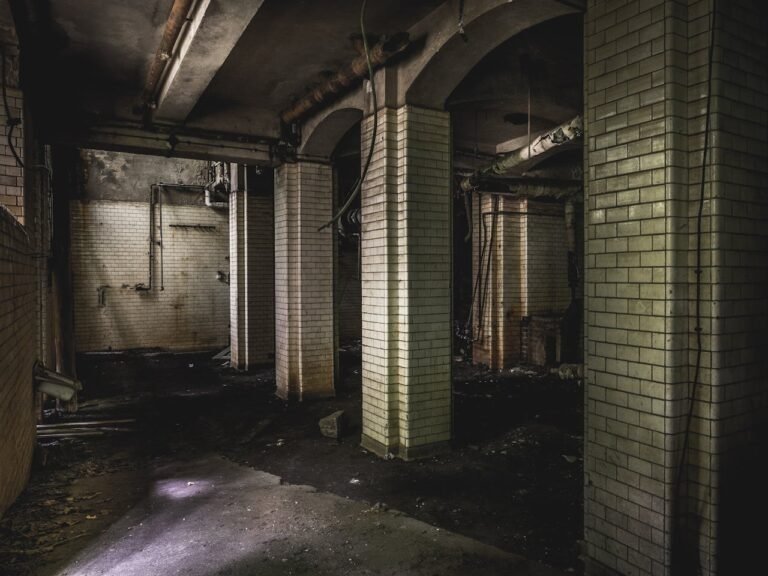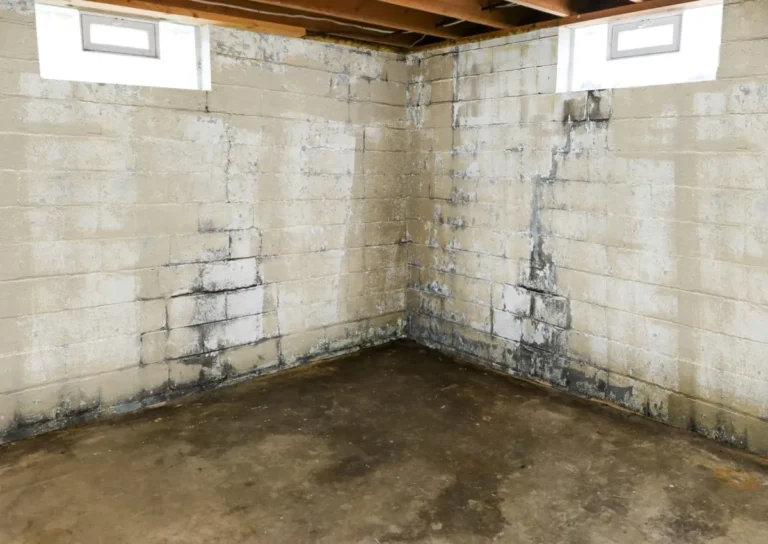What Type of Basement Waterproofing is Best?
The best type of basement waterproofing is interior drainage systems combined with sump pumps. This solution effectively prevents water accumulation and manages moisture.
Basement waterproofing is crucial for protecting your home from water damage. Various methods exist, each catering to specific needs. Homeowners often face challenges like leaks, dampness, and mold growth. A well-chosen waterproofing system not only safeguards your property but also enhances its value.
Understanding the different types of waterproofing options helps you make informed decisions. Factors such as local climate, soil conditions, and budget play significant roles in this choice. Proper waterproofing creates a dry, healthy environment in your basement. This approach can prevent costly repairs and improve air quality in your home. Investing in the right system pays off in the long run.
Introduction To Basement Waterproofing
Basement waterproofing is crucial for home protection. It prevents moisture damage and keeps your space dry. Many homeowners face issues with water pooling in their basements. Understanding the best waterproofing methods helps in choosing the right solution.
Common Moisture Issues In Basements
Basements are prone to various moisture problems. Here are some common issues:
- Water Seepage: Water can seep through cracks.
- Condensation: Humidity can lead to moisture build-up.
- Flooding: Heavy rains can cause water to enter.
- Mold Growth: Damp environments encourage mold.
Identifying these issues early can save time and money. Regular inspection helps maintain a dry basement.
The Importance Of A Dry Basement
A dry basement offers many benefits. Here are some key points:
- Prevents Structural Damage: Moisture weakens foundation walls.
- Protects Personal Belongings: Keeps valuables safe from water damage.
- Improves Air Quality: Reduces mold and allergens.
- Increases Home Value: A dry basement adds property value.
Maintaining a dry basement is essential for a healthy home. Choose the right waterproofing solution for your needs.
Signs You Need Basement Waterproofing
Identifying signs of water damage is crucial. Early detection can save money. Here are key indicators that you need basement waterproofing.
Visible Water Leaks
Water leaks are a clear sign of trouble. Look for:
- Dripping water on walls
- Puddles on the floor
- Water stains or discoloration
These signs indicate water intrusion. Ignoring them can lead to serious damage.
Musty Odors And Mold Growth
Unpleasant odors often signal moisture issues. Musty smells can arise from:
- Mold growth on surfaces
- Wet insulation
- Condensation in corners
Mold can affect health. It thrives in damp areas. Act quickly to prevent further issues.
Read More: Which is the cheapest basement waterproofing method?
Interior Waterproofing Methods
Interior waterproofing methods help keep basements dry. These techniques stop water from entering. They are effective and often more affordable than exterior methods. Here are two popular interior waterproofing solutions.
Sealants And Epoxy Injections
Sealants and epoxy injections are common methods. They create a barrier against moisture. Here’s how they work:
- Sealants: Liquid compounds applied to walls and floors.
- Epoxy Injections: Special resins fill cracks and gaps.
Benefits include:
| Benefit | Description |
|---|---|
| Cost-effective | Less expensive than major renovations. |
| Quick Application | Processes can be completed in a day. |
| Long-lasting | Can provide years of protection. |
Choose high-quality products for the best results. Regular maintenance is essential to keep barriers effective.
Interior Weeping Tile System
The interior weeping tile system is another great option. This system collects water and redirects it. Here’s how it works:
- Install perforated pipes around the basement perimeter.
- The pipes collect water that seeps in.
- Water flows to a sump pump or drainage area.
Key advantages include:
- Effective Water Management: Prevents flooding and water damage.
- Low Maintenance: Requires minimal upkeep.
- Improved Air Quality: Reduces dampness and mold growth.
Proper installation is crucial for success. Consult professionals for best practices.
Read More: Is basement waterproofing worth it?
Exterior Waterproofing Solutions
Exterior waterproofing is essential for protecting your basement. It prevents water from entering through walls and floors. Choosing the right solution can save you money and headaches.
Excavation And Membrane Installation
Excavation is a common waterproofing method. It involves digging around your foundation. This allows for the installation of a waterproof membrane.
- Steps:
- Excavate soil around the foundation.
- Clean the foundation walls thoroughly.
- Apply a waterproof membrane.
- Backfill the soil carefully.
The membrane acts as a barrier against moisture. It keeps your basement dry and safe. This method is effective but can be costly and labor-intensive.
French Drain Systems
French drain systems manage water flow effectively. They redirect water away from your foundation. This helps prevent flooding and water damage.
- Components of a French Drain:
- Trench: A channel dug around the foundation.
- Gravel: This allows water to flow easily.
- Perforated pipe: Collects and directs water away.
Installing a French drain can be a smart investment. It reduces the risk of water damage. Regular maintenance keeps it functioning well.
Drainage Systems And Sump Pumps
Effective basement waterproofing relies heavily on two key components: drainage systems and sump pumps. These systems work together to keep your basement dry. Understanding their roles can help you make the best choice for your home.
The Role Of Sump Pumps
Sump pumps are vital in preventing water accumulation. They remove excess water from your basement. Here are some key points about sump pumps:
- Automatic Operation: Most sump pumps operate automatically.
- Power Source: They typically run on electricity.
- Backup Options: Battery backups are available for emergencies.
- Types: Choose between submersible and pedestal pumps.
Regular maintenance keeps sump pumps functioning well. Check them frequently to ensure they work properly.
Installing A Proper Drainage System
A proper drainage system directs water away from your home. It prevents water buildup in your basement. Consider these options:
| Type of Drainage System | Description |
|---|---|
| French Drain | A trench filled with gravel to redirect water. |
| Interior Drainage | A system was installed inside the foundation walls. |
| Channel Drain | Surface drainage that collects water from hard surfaces. |
Choose the right drainage system based on your needs. Professional installation ensures optimal performance.
Regular inspections help maintain the efficiency of drainage systems.
Read More: How do you permanently waterproof a basement?
Combination Waterproofing Systems
Combination waterproofing systems use multiple methods to keep basements dry. These systems offer flexibility and effectiveness. They combine interior and exterior solutions for maximum protection.
Benefits Of Multi-method Approaches
Using a combination of waterproofing methods has many advantages:
- Enhanced Protection: Multiple layers guard against water.
- Targeted Solutions: Different methods tackle various moisture sources.
- Cost-Effective: Reduces long-term damage and repair costs.
- Increased Home Value: A dry basement adds value to your home.
These benefits make combination systems a smart choice for homeowners.
Case Studies
Real-life examples show how combination waterproofing works:
| Homeowner | Problem | Solution | Result |
|---|---|---|---|
| Smith Family | Water seepage during heavy rain | Exterior drainage + interior sealant | No more leaks |
| Jones Residence | High humidity levels | Dehumidifier + sump pump | Dry air and comfortable living space |
| Lee Home | Cracks in foundation | Crack injection + exterior waterproofing | Stable foundation |
These cases illustrate the success of combination waterproofing systems. They effectively solve various basement issues.
Choosing The Right Waterproofing Contractor
Finding the best waterproofing contractor is crucial. This decision impacts your home’s safety. A qualified contractor provides effective solutions. Poor choices lead to costly repairs.
Credentials And Experience
Check the contractor’s credentials and experience. Look for licenses and certifications. Ensure they specialize in basement waterproofing.
- Verify their business license.
- Check for insurance coverage.
- Ask about industry certifications.
- Review years of experience.
- Look for positive customer reviews.
Experience matters. A contractor with years in the field understands challenges. They can offer tailored solutions for your basement.
Questions To Ask Before Hiring
Prepare a list of questions for potential contractors. This helps you make an informed choice. Here are some essential questions:
- What waterproofing methods do you recommend?
- Can you provide references from past clients?
- What is your estimated timeline for the project?
- What is the total cost, including hidden fees?
- Do you offer a warranty on your work?
Ask these questions to gauge their knowledge and reliability. A trustworthy contractor will provide clear answers. This helps you feel confident in your choice.
Maintenance Tips For A Waterproofed Basement
Keeping your basement waterproof requires regular maintenance. Proper care can prevent costly damage. Follow these tips to keep your space dry and safe.
Routine Inspections
Regular inspections help identify problems early. Check for signs of water intrusion and damage. Here are key areas to inspect:
- Walls and floors for cracks
- Windows and doors for leaks
- Drains and sump pumps for clogs
- Humidity levels in the air
Perform inspections every 3 to 6 months. Use the following checklist:
- Look for visible cracks.
- Check drainage systems.
- Inspect sump pump operation.
- Assess humidity levels.
Address any issues immediately. Delaying repairs can lead to bigger problems.
Long-term Care Strategies
Long-term care is essential for a waterproofed basement. Implement these strategies to maintain your space:
| Strategy | Description |
|---|---|
| Seal Cracks | Use waterproof sealant on cracks. |
| Maintain Gutters | Clean gutters and downspouts regularly. |
| Monitor Humidity | Use a dehumidifier to control moisture. |
| Inspect Landscaping | Ensure proper grading away from the foundation. |
Stay proactive with these strategies. Regular care keeps your basement dry and functional.
Cost Considerations And Budgeting
Basement waterproofing is crucial for protecting your home. Understanding costs helps you make informed decisions. Different methods vary in price. Budgeting properly avoids surprises later.
Estimating Your Waterproofing Project
Start by assessing your basement’s condition. This evaluation helps you choose the right waterproofing method.
- Check for signs of moisture.
- Look for cracks in walls and floors.
- Measure the square footage of your basement.
Here’s a simple table of common waterproofing methods with estimated costs:
| Method | Estimated Cost |
|---|---|
| Interior Sealants | $500 – $1,500 |
| Exterior Waterproofing | $3,000 – $10,000 |
| French Drains | $1,500 – $6,000 |
| Sump Pumps | $1,000 – $5,000 |
Get multiple quotes from contractors. Compare services and prices. Check online reviews for reliability.
Understanding Warranty And Insurance Options
Warranties offer peace of mind for your investment. Different waterproofing methods come with various warranty lengths.
- Interior sealants: 5 to 10 years.
- Exterior waterproofing: 10 to 30 years.
- Sump pumps: 2 to 5 years.
Homeowner’s insurance may cover some waterproofing costs. Always check your policy. Ask your contractor about warranty details. Ensure you understand what is covered.
Consider these factors:
- Duration of the warranty.
- Coverage for labor and materials.
- Transferability of the warranty.
Conclusion
Choosing the right basement waterproofing method is crucial. It protects your home from water damage. Understanding your options helps you make a smart choice.
Assessing Your Basement’s Needs
Start by evaluating your basement. Consider these key factors:
- Water Sources: Identify where moisture enters.
- Soil Conditions: Check if your soil retains water.
- Existing Damage: Look for signs of leaks or mold.
Gather this information to determine the best solution. Different methods work better for different issues.
Planning For Future Protection
Long-term protection is essential. Here are steps to consider:
- Regular Inspections: Check your basement yearly.
- Maintain Gutters: Keep them clean to direct water away.
- Install Sump Pumps: They help remove water effectively.
Investing in preventative measures saves money later. Choose a method that fits your needs and budget.
| Waterproofing Method | Best For | Cost |
|---|---|---|
| Interior Sealants | Minor leaks | Low |
| Exterior Waterproofing | Severe moisture issues | High |
| Sump Pump Systems | High water table | Medium |
Consider all options carefully. Protect your basement to maintain a safe home.
Frequently Asked Questions
What Is The Most Effective Basement Waterproofing Method?
The most effective basement waterproofing method varies by situation. Common solutions include interior drainage systems, exterior waterproofing membranes, and sump pumps. Each method addresses different water intrusion issues. A professional assessment can help determine the best option for your specific basement needs.
How Long Does Basement Waterproofing Last?
Basement waterproofing longevity depends on the method used. Interior systems can last up to 10 years, while exterior waterproofing may last over 20 years with proper maintenance. Regular inspections are essential to ensure the effectiveness of the waterproofing system. Timely repairs can extend its lifespan significantly.
Can I Waterproof My Basement Myself?
Yes, DIY basement waterproofing is possible but requires careful planning. Simple tasks include sealing cracks and applying waterproof paint. However, complex issues like drainage may need professional intervention. Assess your skills and the extent of the problem before proceeding with a DIY solution.
How Much Does Basement Waterproofing Cost?
Basement waterproofing costs vary widely based on the method and extent of work needed. Basic DIY solutions might start at a few hundred dollars, while professional services can range from $1,500 to $5,000 or more. It’s essential to get multiple quotes and evaluate your specific requirements.
Conclusion
Choosing the right basement waterproofing method is crucial for long-term protection. Each option has its benefits, tailored to different needs and budgets. Assess your home’s specific requirements before making a decision. Investing in quality waterproofing can prevent costly repairs and enhance your property’s value.
Make an informed choice today.




